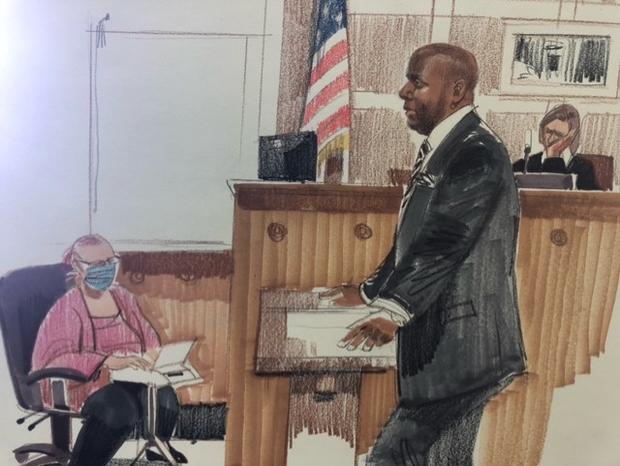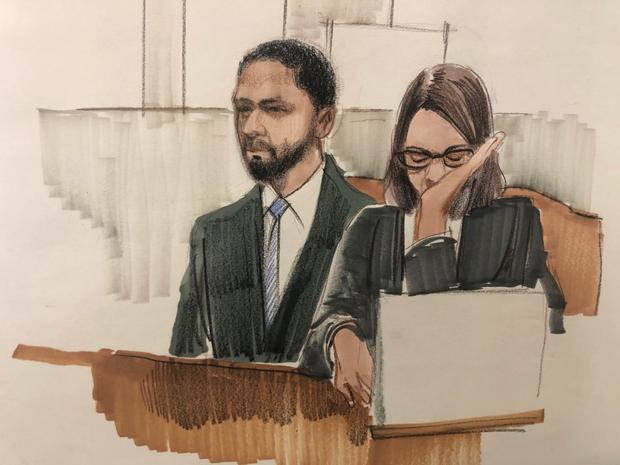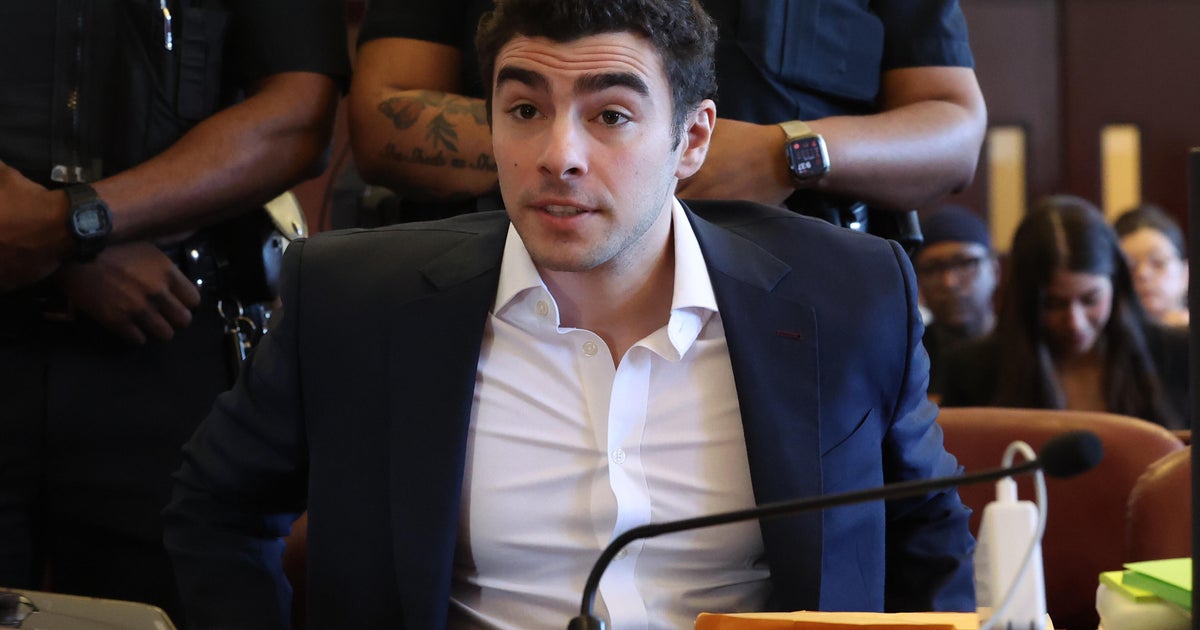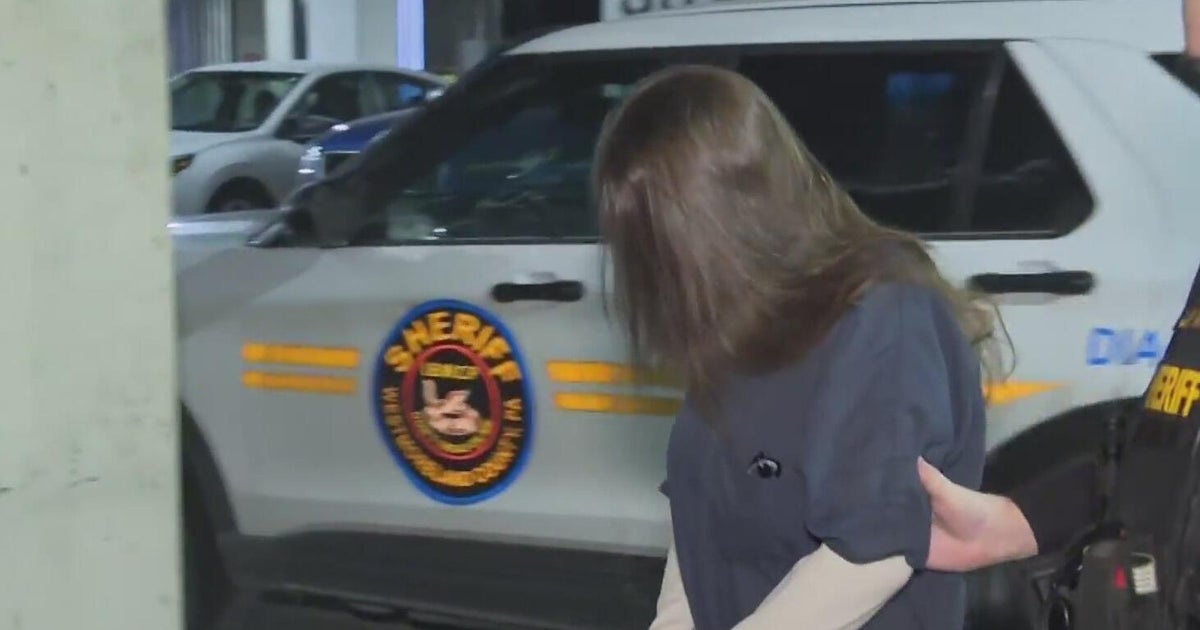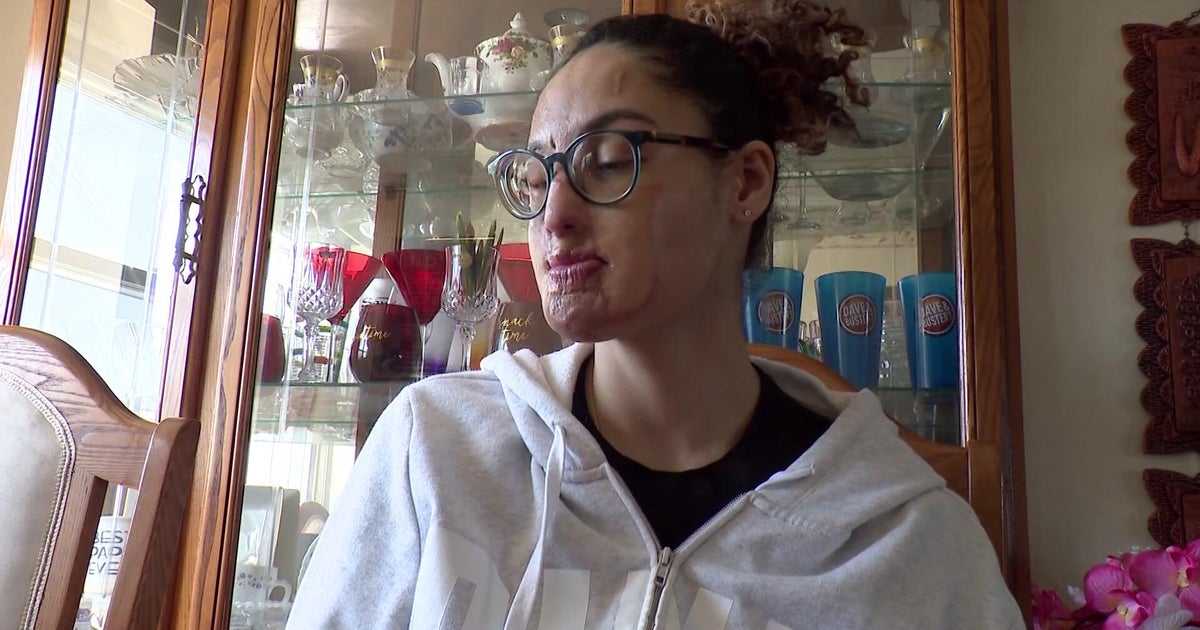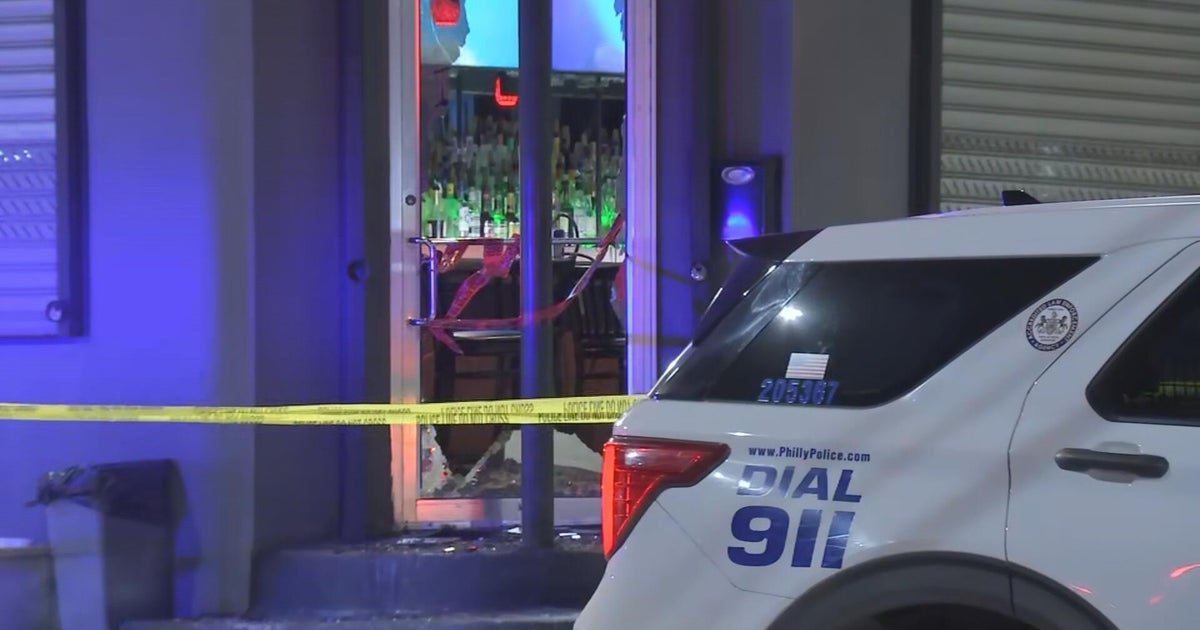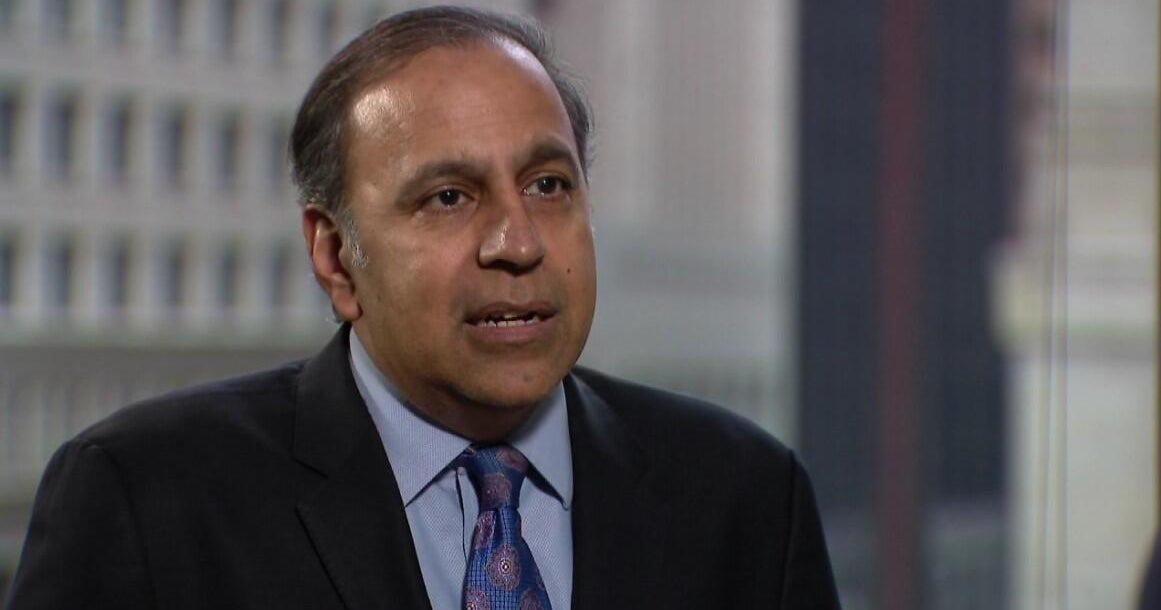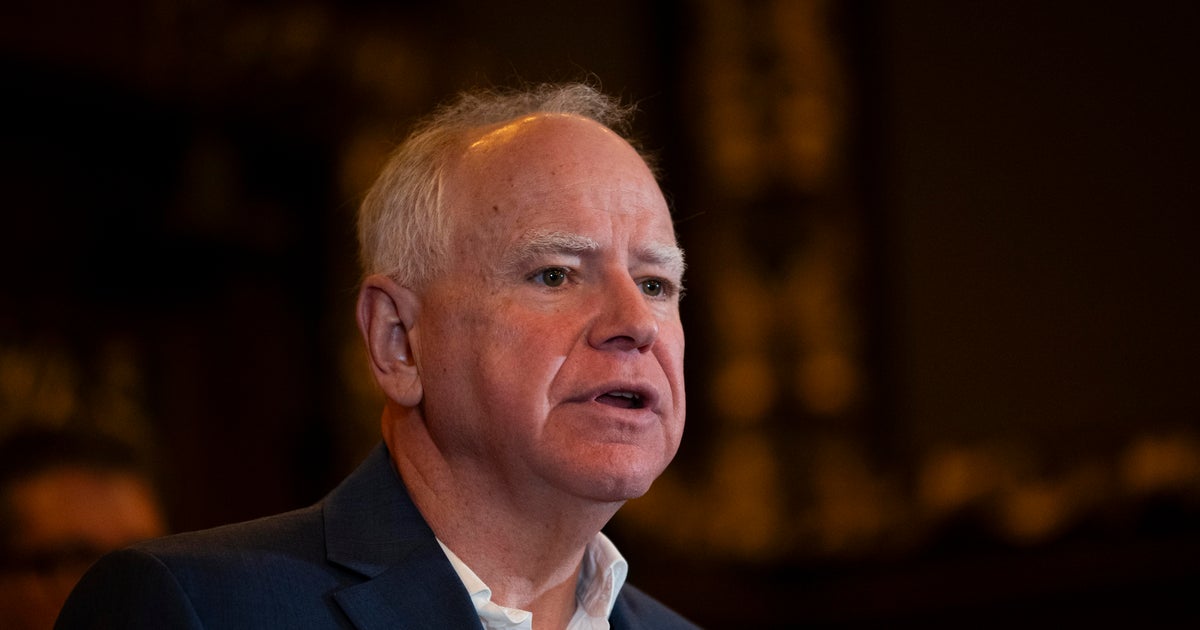Jury Begins Deliberations, Wraps For Day Without Verdict In Jussie Smollett Trial After Closing Arguments Conclude
CHICAGO (CBS)-- A Cook County jury has begun deliberations in the Jussie Smollett trial, deciding whether or not they believe he orchestrated a phony hate crime against himself nearly three years ago, or was really attacked by two brothers in Streeterville.
The jury of six men and six women wrapped for the day at 5 p.m. without a verdict. Cook County Judge James Linn told jurors not to discuss the case with anybody and not to watch the news.
The jury asked Judge Linn for a calendar of events focused on January 2019 in the case before wrapping for the day. Linn will decide on whether to give it to them on Thursday, when deliberations will resume at 9:15 a.m.
The jury began deliberating mid-afternoon on Wednesday, after both sides presented their closing arguments in the case, with prosecutors telling jurors they presented a clear-cut case that the former "Empire" actor orchestrated a fake hate crime against himself as a publicity stunt, and the defense calling the prosecution's case a "house of cards."
"We have proven this by overwhelming evidence," special prosecutor Dan Webb told the jury during the prosecution's closing argument on Wednesday.
Webb said it was "just plain wrong" for a Black gay man like Smollett to stage a phony hate crime, using symbols of racism like a noose and use of the N-word.
"To outright denigrate something as serious, as heinous, as a real hate crime -- to denigrate it and then make sure it involved words and symbols that have such horrible historical significance in the our country," Webb said.
But Smollett's defense attorney asserted the prosecution's case is based on the testimony of liars, calling the Osundairo brothers "the worst type of criminals."
"The entire prosecution case including the foundation of their case is built like a house of cards, and we all know what happens to a house of cards when you apply a little pressure: it crumbles," defense attorney Nenye Uche said.
Uche said the Osundairo brothers accusing Smollett of staging a hoax was simply a "blame the victim scam."
"It's better than the Nigerian prince scam," Uche said. "Don't fall for it."
Smollett, who once starred on the hit show "Empire," faces six counts of disorderly conduct, accused of orchestrating a fake attack against himself nearly three years ago, and then lying to police about it, in a bid for publicity.
Smollett, who is Black and gay, had told police he was attacked as he was walking home in Streeterville around 2 a.m. on Jan. 29, 2019. He claimed two masked men – one of them also wearing a red hat – shouted racist and homophobic slurs as they beat him, put a noose around his neck, and poured a chemical on him. Police and prosecutors have said Smollett orchestrated it himself, paying the Osundairo brothers $3,500 to help stage the attack, because he was unhappy with "Empire" producers' response to hate mail he had received.
Webb said when Smollett took the stand in his own defense, he tailored his testimony and "lied under oath to you jurors," accusing the actor of providing "false testimony."
Webb also accused Smollett of refusing to cooperate with the police investigation of his claims by not handing over evidence that detectives told him would be key to solving the case -- such as his phone and medical records.
"If he is a true victim of a crime, then he would not be withholding evidence from the police department," he said.
However, Uche argued Smollett had legitimate privacy concerns.
"He wasn't hiding anything," Uche said.
Webb ridiculed Smollett's claim that he went out around 2 a.m. on the night of the attack -- on one of the coldest nights in years -- to buy eggs at a nearby Walgreens, saying he believed it was open 24/7, when it never was. He also said it makes no sense that the Osundairo brothers would have been able to ambush him unless he'd already told them where to be.
"How could brothers know in advance if they weren't told to be at that specific location?" he said.
Webb said, if the attack was real, and the Osundairo brothers were planning to "bushwhack" Smollett on their own that night, wouldn't they have split up and watched both entrances to Smollett's building?
"They knew where he was going to be because they were told where to be," he said.
Webb also told jurors Smollett admitted that he tampered with the rope that was placed around his neck before police arrived—contradicting claims the actor made in a nationally televised interview just weeks after the reported attack.
Prosecutors have told the jury that, leading up to the incident, Smollett exchanged "5 phone calls, 40 texts, and 9 Instagram messages with Abel, arguing they were planning the fake attack.
But Smollett and his attorneys repeatedly said there was no hoax, with Uche loudly telling the jury, "I believe Mr. Smollett is absolutely innocent. Let me make that clear."
Uche wrapped up his closing argument by pleading with the jury, "You don't convict someone because you think he did it. You prove it."
Smollett's defense team rested their case on Tuesday, after the actor claimed the Osundairo brothers -- the key prosecution witnesses in the case -- asked him for $2 million to "go away" and say there were not involved in any hoax.
However, Smollett said he never paid them any money. Earlier at trial, Abel Osundairo denied asking Smollett for $1 million each for him and his brother not to testify against Smollett.
If convicted, he would face up to three years in prison, although legal experts have said it's more likely he'll face probation.
The jury got a verdict form for each of six counts of disorderly conduct -- each count covering different statements he made to police, which prosecutors say were false.

